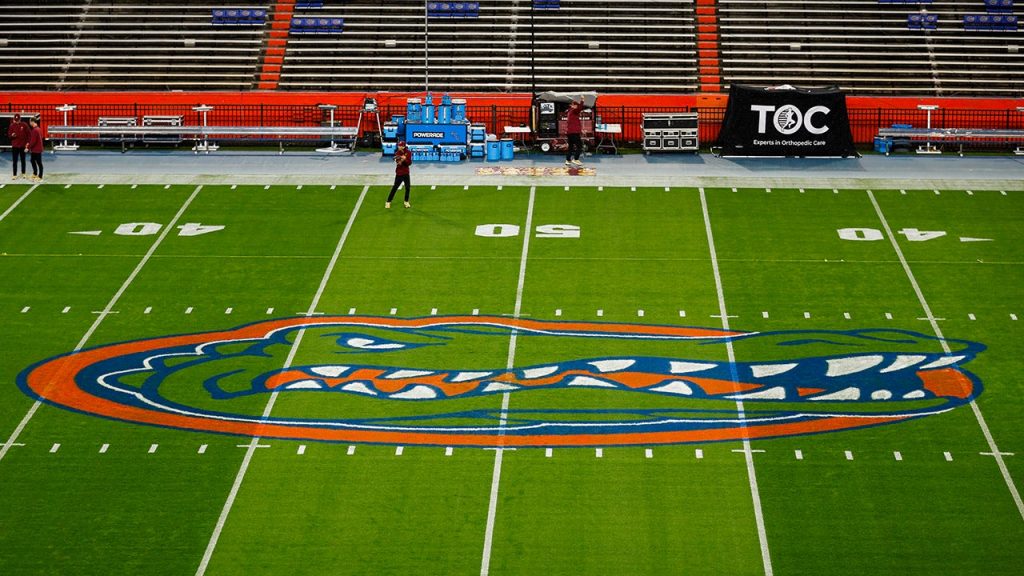Michai Boireau, an 18-year-old rising freshman football player at the University of Florida, found himself in trouble with the law after getting into a high-speed chase with police in Monroe County, Georgia. Boireau was initially pulled over for going 86 mph on Interstate 75, but he turned off his lights and sped to 150 mph to try and evade the police. Eventually, he was caught and found to have marijuana in his car, resulting in him being hit with multiple charges including fleeing from a police officer, obstruction of law enforcement officers, and reckless driving. Boireau enrolled at Florida in January after choosing the Gators over Georgia and other schools.
Despite initially committing to Florida in June of the previous year, Michai Boireau had briefly uncommitted in September before ultimately signing his national letter of intent with the Gators. He attended Creekside High School in Hampton, Georgia, where he was a three-star recruit. Boireau had also considered schools like Georgia, Georgia Tech, Maryland, Michigan, Ole Miss, Tennessee, Auburn, Texas, and Texas A&M before ultimately deciding to play for Florida. However, he is not the only Florida player to have been in trouble with the law recently, as wide receiver Brian Green Jr. was also arrested for first-degree battery following an altercation with his girlfriend.
Boireau’s decision to flee from the police and the subsequent charges he faced have likely tarnished his reputation as a promising football player and student-athlete at the University of Florida. The incident raises questions about his judgment and decision-making, as well as potentially impacting his future prospects in football. It also serves as a reminder of the pitfalls that young athletes can face when thrust into the spotlight and the importance of making responsible choices both on and off the field.
The arrest of Michai Boireau is not an isolated incident, as collegiate athletes across the country have faced legal issues that have jeopardized their careers and opportunities. Universities and collegiate sports programs often have to navigate complex issues when student-athletes run afoul of the law, balancing disciplinary actions with the need to support and educate their athletes. As a rising star at Florida, Boireau’s actions have consequences beyond just himself, impacting the team, the coaching staff, and the reputation of the university as a whole.
The case of Michai Boireau serves as a cautionary tale for young athletes about the importance of making responsible decisions and the potential consequences of illegal or reckless behavior. Boireau’s arrest highlights the challenges that young athletes face in managing their newfound fame, balancing the pressures of competition with personal conduct, and staying on track academically and athletically. It also underscores the role that universities and sports programs play in guiding and supporting their student-athletes, both on and off the field, to help them succeed both during their college careers and beyond.
In conclusion, Michai Boireau’s high-speed chase with police and subsequent arrest have likely had a significant impact on his future as a football player at the University of Florida. The incident raises questions about his judgment, character, and prospects for success both on and off the field. It also serves as a reminder of the challenges and responsibilities that young athletes face, as well as the role that universities and sports programs play in guiding and supporting their student-athletes. Ultimately, Boireau’s case highlights the importance of making responsible decisions, the consequences of illegal behavior, and the need for athletes to navigate the pressures and pitfalls of collegiate sports with care and integrity.


